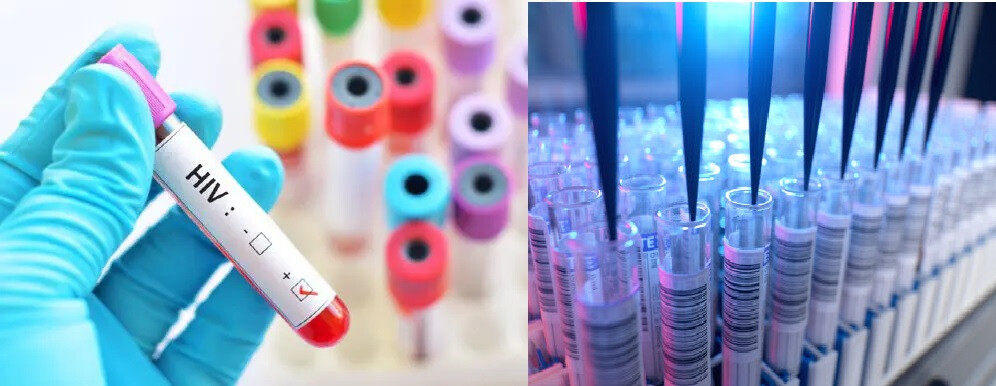
With a sharp increase in the number of HIV (Human Immunodeficiency Virus) infections, the Philippines is facing a health emergency. Amidst this crisis, the U.S. Food and Drug Administration (FDA) has approved Gilead Sciences' new injectable HIV prevention drug, 'Yeztugo.' Attention is now focused on how this drug will impact the spread of HIV in the Philippines.
Philippines' HIV Status: A Serious Upward Trend
According to the Philippine Department of Health (DOH), the number of new HIV infections in the Philippines from January to April 2024 was 6,703. This averages 56 cases per day, a 44% increase compared to the same period last year. The daily average of new infections annually more than doubled from 21 in 2014 to 48 in 2023, and this increase has accelerated further in 2024. The severity is particularly alarming, with 145 deaths from HIV infection and AIDS in the first quarter of 2024 alone.
The Philippine DOH points to sexual contact as the main route of HIV transmission, stating that 83% of recent new infection cases are related to sexual intercourse between men (MSM). Accordingly, Philippine health authorities strongly recommend adherence to prevention guidelines for safe sexual practices, such as condom use and pre-exposure prophylaxis (PrEP) drug intake. However, due to the socioeconomic environment in the Philippines, limitations in health infrastructure, and a lack of sex education and awareness improvement, these recommendations are difficult to implement sufficiently on the ground. The increase in indiscriminate sexual activity among young people and the use of online dating apps that ensure anonymity are also analyzed as factors contributing to the spread of infection.
The Emergence of 'Yeztugo': A Once-Every-Six-Months Injection
In light of the severe situation in the Philippines, news broke on June 19 (local time) that the U.S. FDA approved Gilead Sciences' injectable HIV-1 capsid inhibitor, 'Yeztugo,' as a pre-exposure prophylaxis (PrEP) drug for adults and adolescents. Yeztugo is a groundbreaking drug administered through an injection once every six months, and it is expected to significantly alleviate the inconvenience of existing PrEP drugs, which require daily oral intake or bimonthly injections.
Despite their high efficacy, existing PrEP drugs have faced difficulties in distribution due to issues with medication adherence caused by frequent dosing and administration, as well as the social stigma associated with HIV/AIDS. Dr. Carlos del Rio, Director of the Emory University AIDS Research Center in Atlanta, emphasized, "A once-every-six-months injection can significantly address key barriers such as adherence challenges and social stigma that people relying on more frequent PrEP regimens, especially daily oral PrEP, face."
Actual clinical trial results from Gilead prove Yeztugo's excellent preventive effect. In a clinical trial involving women in sub-Saharan Africa, Yeztugo administration showed a 100% reduction in HIV infection compared to taking only Gilead's existing daily oral drug, 'Truvada.' In another clinical trial, only 2 out of 2,179 individuals who received Yeztugo became infected with HIV, demonstrating a 99.9% preventive effect. This effectively means near-perfect prevention.
Price Issues and Challenges for Introduction in the Philippines
However, the high price of 'Yeztugo' is expected to be a major obstacle to its widespread adoption in developing countries like the Philippines. The estimated annual cost of the drug without insurance is approximately $28,218 (around 39 million Korean Won), which is even higher than Gilead's existing oral PrEP drug (approximately $24,000 annually, or 33 million Korean Won). Given the economic situation in the Philippines, very few individuals can afford this cost.
Therefore, without active intervention from the Philippine government or international health organizations, it seems difficult for Yeztugo to make a substantial contribution to preventing HIV spread in the Philippines. Only if Gilead Sciences introduces a low-cost policy for developing countries or if drug supply is achieved through international support can this groundbreaking preventive drug be widely distributed in countries like the Philippines.
Furthermore, apart from the drug's introduction, fundamental changes in Philippine society are also required. Addressing the social stigma surrounding HIV/AIDS and promoting correct sex education and awareness of prevention are urgent. Efforts to strengthen the healthcare system and expand infrastructure to ensure vulnerable populations have easy access to HIV testing, treatment, and prevention services must also be pursued in parallel.
The approval of 'Yeztugo' signifies an important advance in HIV prevention. However, for this drug to play a successful role in resolving the HIV emergency in the Philippines, multifaceted efforts are needed, including addressing the price issue, improving overall societal awareness, and expanding healthcare infrastructure.
[Copyright (c) Global Economic Times. All Rights Reserved.]





























